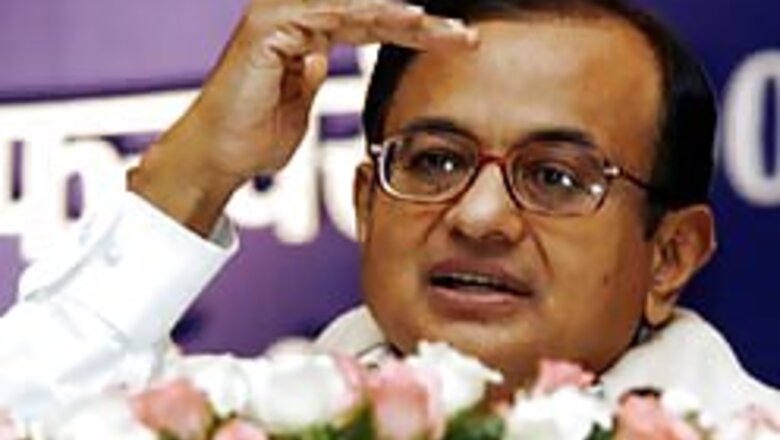
views
Washington: The International Monetary Fund has projected the Indian economy to grow at a rate 8.75 per cent this fiscal on the back of rising productivity and investment.
Though the country's favourable outlook attracts huge capital flows which help finance investment, it also poses a challenge to find a balance between exchange rate stability and financial openness, IMF Executive Directors said in their summary note.
The IMF estimate comes in the wake of India revising upwards its growth estimates for the last fiscal to 9.6 per cent from earlier calculation of 9.4 per cent a few days ago and Finance Minister P Chidambaram exuding the confidence that the economy will grow close to nine per cent for the current fiscal.
On the other hand, the Reserve Bank of India in its quarterly review of monetary policy has retained its estimate of at 8.5 per cent this fiscal, true to the conservative style of most central banks. The apex bank also maintained a status quo policy rates against market expectation of a reduction in key rates.
An economic think-tank in India, NCAER. too has revised its projection to 9.1 per cent against its earlier forecast of 8.9 per cent.
The IMF directors, however, differed on their view on whether India should go for temporary controls to moderate capital inflows or not.
While a number of directors supported the Reserve Bank's cautious and pragmatic approach towards managing the capital flows, including through "temporary capital controls", some others cautioned against the step. "India's economy has been resilient in the face of heightened global uncertainties, slowing US growth, and high world oil prices, and is expected to expand by 8.75 per cent this fiscal year as a result of rising productivity and investment," the Executive Directors said.
The economy expanded by 9.3 per cent in the first quarter and 8.9 per cent in the second quarter of this fiscal. Commending India's success in containing inflation and maintaining domestic financial stability, the IMF directors have observed that large capital inflows have exacerbated tensions among exchange rate stability, monetary independence, and financial openness. "Large capital inflows are complicating the conduct of monetary policy, creating excess liquidity and pressuring the rupee," IMF said, pointing to several steps taken to tighten monetary conditions.
The Fund has backed the central bank's management of liquidity and accommodation of increased exchange rate volatility, while noting appreciation pressures on the rupee. There has been the concurrence among directors that the rupee appreciation reflected strong fundamentals and increasing productivity, and they saw the policy of a managed float as remaining appropriate.
A number of Directors, however, expressed concern that rupee appreciation has adversely affected India's external competitiveness in certain labour intensive sectors.
These Directors supported the authorities cautious and pragmatic approach to managing capital flows, including temporary capital controls, while commending the authorities intention to move to fuller capital account convertibility gradually over the medium term. At the same time it has been pointed out in the IMF notes that some of the Directors have cautioned against curbs on capital inflows.
They emphasised that increased exchange rate flexibility, strengthened monetary operations, and more effective communication with markets could be a better way to increase monetary policy effectiveness in a more financially open environment.




















Comments
0 comment